THE TRANSFORMATIVE POWER OF THE BRAVE HEART
Smitten By Faith Issue Number : 0000096 24th January 2025
Next week, on 29th January 2025, as we enter into the Chinese Lunar New Year of the Wood Snake, I am reminded of the snake’s symbolism in the Chinese zodiac. The snake is a reptile, the sixth animal on the 12-year Chinese zodiac’s cycle and as in the case of all reptiles is able to shed its skin, bringing in its wake, transformation and renewal. That is certainly our hope for all humanity in 2025.
Above : This is a lovely painting (gouache on mica), one of a series of 6 paintings of snakes circa 1860 by an unknown artist. This rather surreal snake is poised against a landscape of hills. This painting is in the Victoria & Albert Museum Collection in London; not displayed.
Wisdom, courage and bravery are among the ‘good’ Snake’s attributes. Those born under the Year of the Snake include some famous visionaries and leaders – brave hearts - such as the late American President John F. Kennedy and the awesome British scientist Stephen Hawking, to name but a few.
Left : John F. Kennedy or JFK
Right : Stephen Hawking
So, today I would like to write about the brave heart and its transformative power. A brave heart has compassion which is also a character trait that all good people have. When we believe in God; follow God and walk by faith, our actions point directly to the human heart.
‘Be of good courage, and He shall strengthen your heart, all you who hope in the LORD.’
( Psalm 31:24 )
Advocating for the plight of the poor, the weak and the marginalised of our society are causes which are surely never far from our hearts ? Social justice is the belief that each one of us deserves equal rights, opportunities and treatment. Pope Francis loves the phrase in Italian, ‘fratelli tutti’ which means ‘ we are all brothers’. This is the essence of social justice. If you love one another as a brother, how then could you treat him or her unjustly ? I have tried to write about social justice and promoting a fair society in ‘Smitten By Faith’. You can take a look at Article # 00042 published on 21st May 2022: ‘Social Justice - A Moral Vision- Commitment to the Common Good’.
In this commitment to the common good, humanity today needs every brave heart - YOUR brave heart- to fill the world with mercy, compassion and love; to trust in the natural goodness of humanity.
‘Watch, stand fast in the faith, be brave, be strong’.
( 1Corinthians 16:13)
MERCY AND COMPASSION
The words ‘mercy’ and ‘compassion’ are often used interchangeably to refer to the concern we have for people in need; a call to imitate God's compassion by being moved by the pain of others and helping to relieve such suffering. But, the two attributes are not exactly the same. You can be merciful without being compassionate. However, a compassionate person will always be able to show mercy.
‘Be merciful as God is merciful; Be compassionate as God is compassionate’
(Luke 6:36)
When I was in high school, my favourite Shakespeare play was ‘The Merchant of Venice’. I learnt by heart Portia’s stunning monologue (in Scene 1 of Act 4 ) pleading for mercy. Portia a woman, disguised as a male lawyer, appears in court to defend the Venetian merchant Antonio. Portia then does an extraordinary thing. She puts aside all rational and legal arguments. Instead, she begs Shylock the hard-hearted Jewish moneylender to show mercy to Antonio who has defaulted on his loan with terrible consequences. Upon Antonio’s default, Shylock had demanded for his agreed collateral which was literally Antonio’s ‘pound of flesh’ in settlement. This would, of course, have meant Antonio’s death. And so, Portia asks for mercy and her speech is Shakespeare’s masterpiece on what the quality of ‘mercy’ really is. Portia says that the power of mercy is ‘an attribute to God Himself’.
‘The quality of mercy is not strain'd.
It droppeth as the gentle rain from heaven
Upon the place beneath. It is twice blest:
It blesseth him that gives and him that takes.
'Tis mightiest in the mightiest; it becomes
The thronèd monarch better than his crown.
His scepter shows the force of temporal power,
The attribute to awe and majesty
Wherein doth sit the dread and fear of kings;
But mercy is above this sceptered sway.
It is enthronèd in the hearts of kings;
It is an attribute to God Himself.’
Left : ‘Portia’ by the artist George William Smetham-Jones (1864-1905); Watercolour (1893 ). The Maas Gallery, London. Exhibited at the Royal Institute of Painters in Water Colours.
Right : A Portrait of Shakespeare, known as the Chandos portrait attributed to John Taylor circa 1610. However, there are no actual physical representations of Shakespeare as he never surfaced and remained mysterious until his death.
Above : The Merchant of Venice; painting by Robert Smirke RA ( 1753-1845) an English painter and illustrator specialising in small paintings with subjects taken from literature. He was a member of the Royal Academy.
The word ‘mercy’ has its Latin root, ‘merces’ which means ‘price’. So, the word ‘mercy’ is used when we ask for help from someone stronger; more powerful than we are. Mercy is not about justice or right or wrong. It’s not about equality. We ask for mercy even when we are in the wrong; even when we have nothing left to negotiate with, but simply to beg for an undeserving act of the other. The act of Mercy.
Above : A wood carving of Guan Yin (c. 1025). Northern Song dynasty, China. Honolulu Museum of Arts.Public domain
In Chinese mythology and Buddhism, there is the Goddess of Mercy, ‘Guan Yin’ (觀音) or the Tibetan Boddhisattva ‘Chenrezig’ who symbolizes both compassion and mercy. These two attributes of Guan Yin belong together and are beloved by Buddhists in its various forms all over the world – in Tibet, Nepal, Thailand, Myanmar to name but a few.
Compassion comes from the two Latin words ‘com pati ’ which means ‘to suffer with’. It means that we can feel what suffering the other person is going through and fully empathise with them. On the other hand, one can show mercy without such empathy or compassion. Just as in the case of Shakespeare’s Shylock when Portia asks him to show mercy by not extracting the pound of Antonio’s flesh. Notice that Portia does not ask for compassion. Just for mercy.
However, in the Buddhist ideal and in the Christian ideal of social justice, both mercy and compassion come together. It is exactly our brave and loving compassionate hearts which enable us to trust God, know God, love God and love our fellow men. Showing mercy comes easily to those who have such loving compassion. A courageous heart; a brave heart.
Above : Domenico Fetti ‘Parable of the Wicked Servant’; oil on canvas (circa 1620). Collection of the Gemaldegalerie Alte Meister ( Old Masters Picture Gallery ), Dresden, Germany.
In the Bible, we see that mercy is the act of treating people in distress with compassion, especially when it's possible to punish or harm them instead. In the Gospel of Matthew 18:21-35 – the ‘Parable of the Unmerciful Servant’ or sometimes called ‘The Parable of the Wicked Servant’, we see Peter asking Jesus how many times we should forgive those who sin against us. Jesus replies that we should show mercy – not just once; not just 7 times but 77 times. Jesus then relates the story of a King who settles accounts with his servants including that of one of his servants who owes him many many bags of gold. The King decides to forgive the debt when this servant begs him for mercy because he would lose his entire family if they are sold into slavery to pay his debts. But later this same servant, after he is granted mercy by the King who forgives him of all his debts, then returns to his own home and proceeds to beat up one of his own fellow servants for not paying him back some paltry amount of money. Seeing this act of total meanness and ingratitude, the others were outraged and related this back to the King. As a result, the King revoked his act of mercy and had the wicked servant beaten and thrown in prison while now demanding that he fully honour his original debt to the King. Even though the King earlier had showed mercy, the wicked servant did not do the same. The first act of mercy is not a license for us to be unmerciful to others. The King had shown his servant great mercy but that ungrateful servant did not extend even a fraction of that mercy to others. Even though Jesus tells us to forgive endlessly - ‘…77 times’ - this parable reminds us of the importance of a sincere heart and accountability. Our brave hearts must indeed practice what we receive.
‘Be merciful as our Father is merciful’.
I wish you all a very happy Lunar New Year of the Snake ! May the transformative power of your own brave heart give you the courage to face every obstacle in 2025.
____________________________________________________________________________Editor’s Note :
Dear Reader
Thank you for reading this edition of SMITTEN BY FAITH.
We publish once a month. ALL articles in every issue are FREE so you can simply click and subscribe as a FREE Subscriber to continuously receive the articles automatically by email.




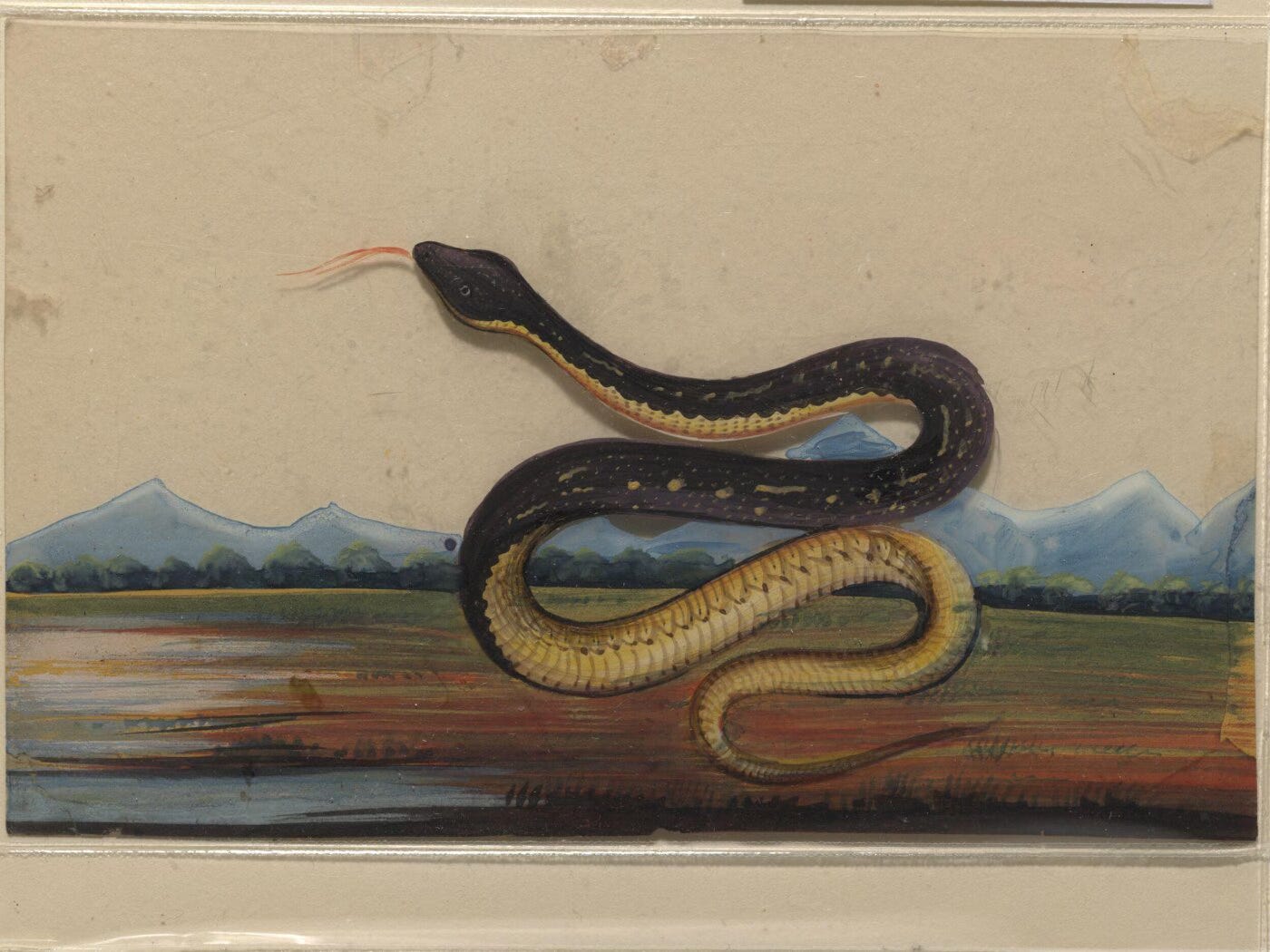

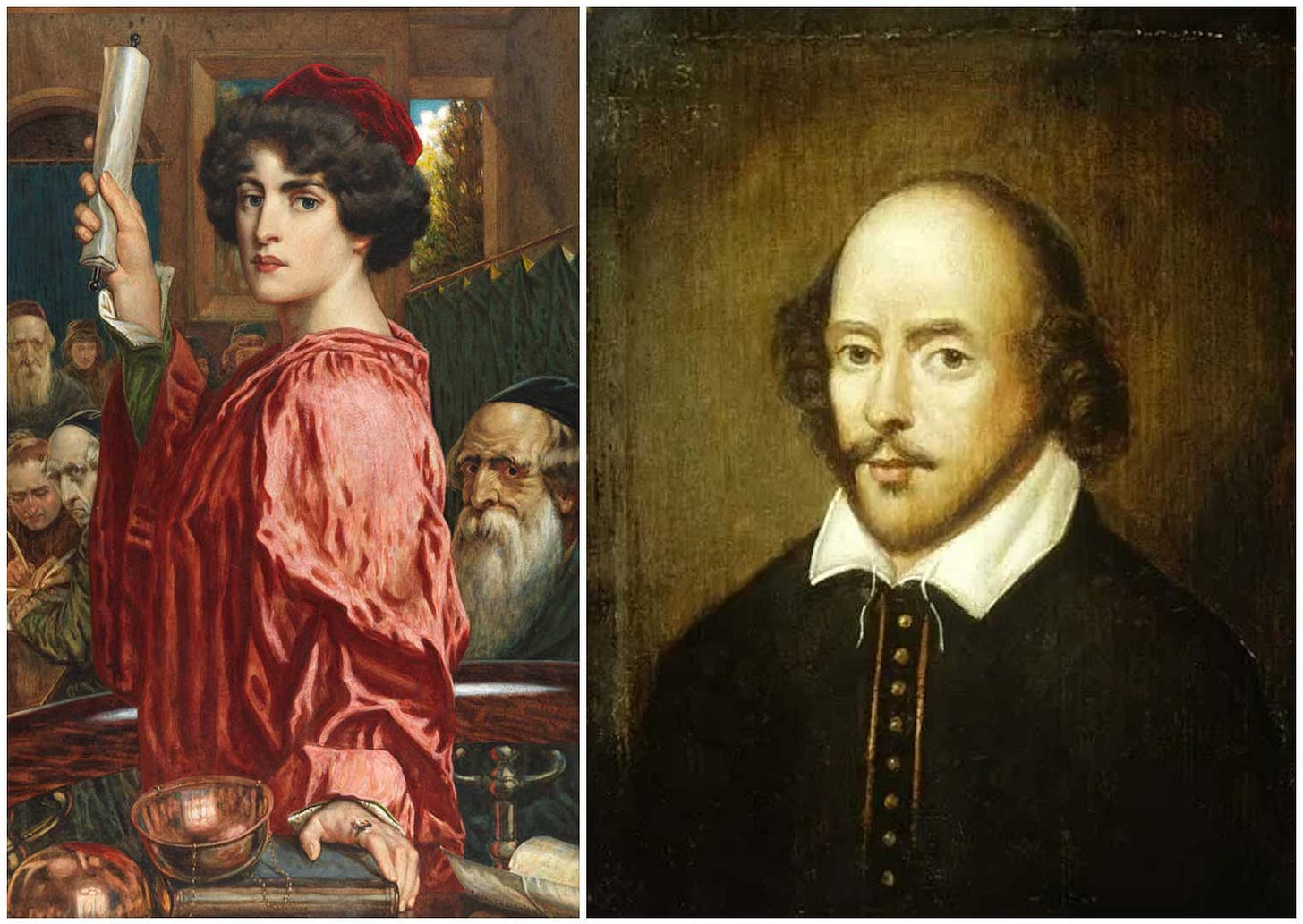
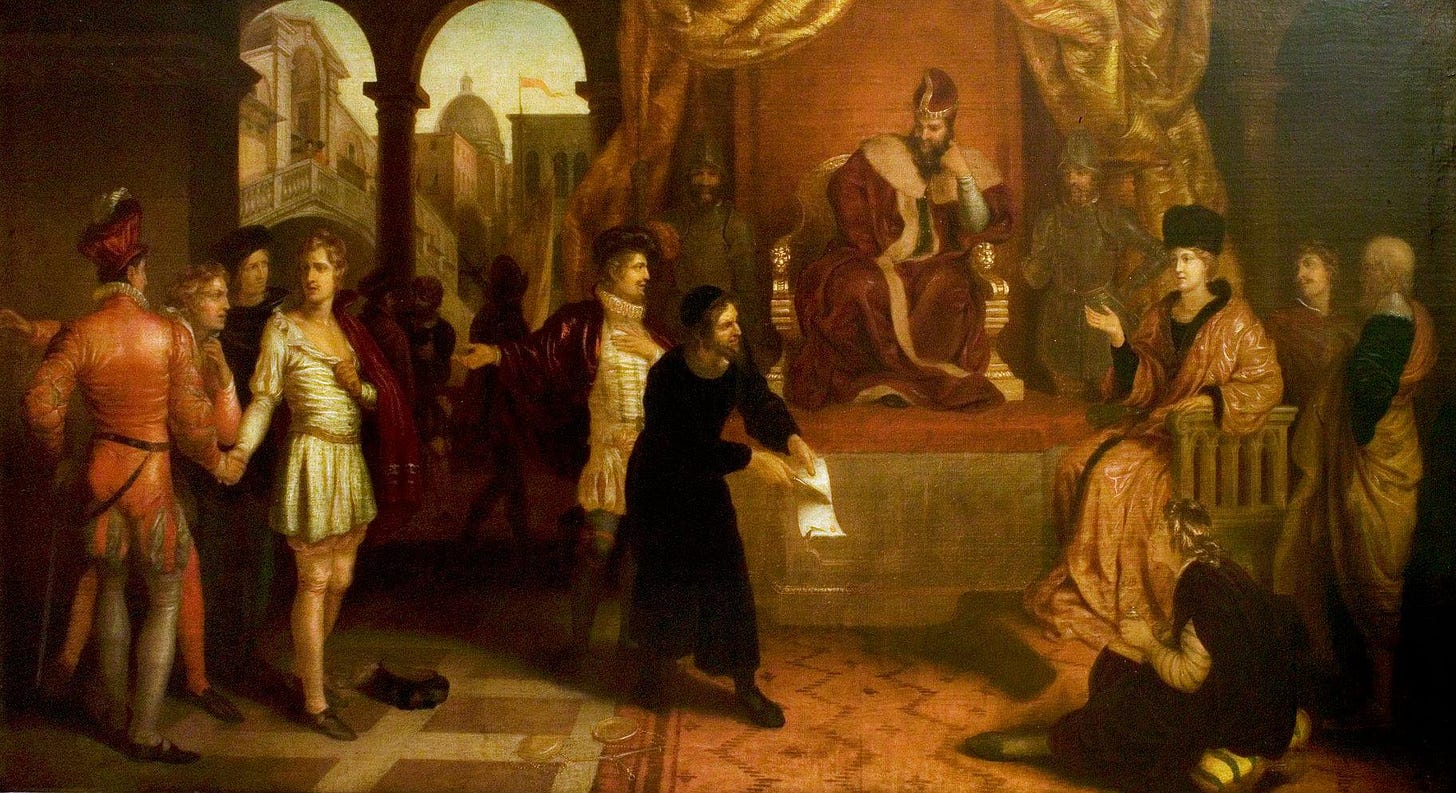
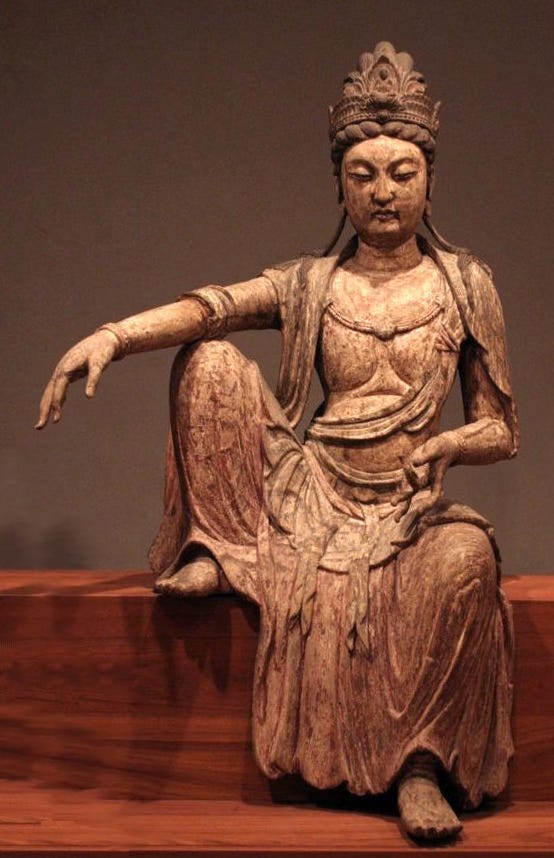
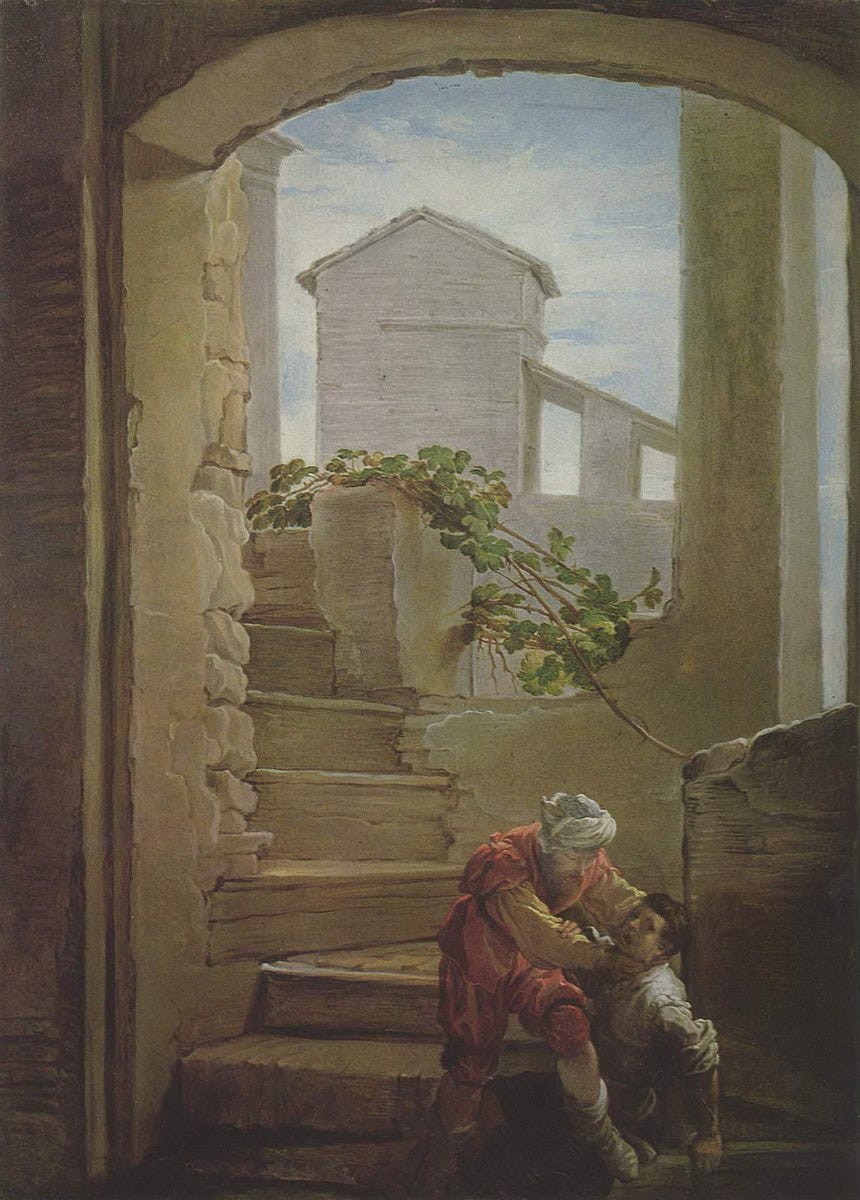
Joan thank you ! Enjoy reading your article ! Vivian